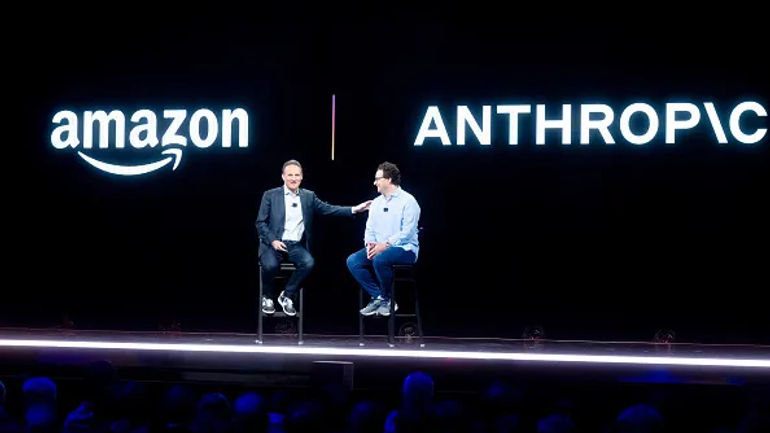
WPP Incorporates Cutting-Edge Technology from Anthropic for Advanced AI Evolution

Discover how WPP is enhancing its capabilities with the integration of Anthropic's latest Claude AI models into WPP Open, a leading operating system utilized by top clients like Coca-Cola, L’Oréal, and Nestlé. Dive into the future of generative AI transformation.
WPP Partners with Anthropic to Integrate Claude AI Models
WPP has announced a partnership with Anthropic to incorporate the latest Claude family of AI models into its WPP Open operating system. This collaboration aims to leverage Anthropic's cutting-edge artificial intelligence technology to enhance the capabilities of WPP's operating system.
Claude, which includes Opus, Sonnet, and Haiku software, is now part of WPP Open through Amazon Bedrock, a generative AI marketplace provided by Amazon Web Services. WPP Open has 114,000 employees who can now use Claude for tasks like analyzing briefs and creating content for marketing purposes.
WPP Open is utilized by major brand clients of the ad-holding group, such as The Coca-Cola Company, L’Oréal, and Nestlé. This partnership highlights the increasing adoption of generative AI by agencies, who view the technology as a tool for boosting productivity and gaining a competitive advantage.
Article Insight:
WPP is embracing Anthropic’s Claude suite of generative AI as part of its strategy to revamp its marketing services empire with cutting-edge technology. The company, which owns GroupM and Ogilvy, kicked off the year by committing to invest 250 million pounds (about $318 million) every year to fuel its AI transformation. With growth stagnating, WPP faces competition from rivals like Publicis who are also increasing their investments in AI to appeal to prospective clients.
WPP has been making strategic moves to provide its employees with cutting-edge AI tools. Recently, they partnered with Anthropic, a startup that competes with companies like OpenAI. In addition to this, WPP also collaborated with Google to introduce Gemini AI to WPP Open and has been working with Nvidia on an AI-powered content-creation engine since last summer. They also utilize OpenAI's GPT-4 and DALL-E, along with various other AI platforms.
Anthropic, supported by tech giants such as Amazon, has received significant investment. Amazon has pledged billions to the startup and is assisting WPP in adopting Claude through Amazon Bedrock. Bedrock, a managed service under AWS, helps companies access existing AI models, saving them the time and resources needed to build their own from scratch, which can be a costly and resource-intensive process.
Anthropic has recently introduced the latest Claude 3 models, which are considered among their most advanced offerings. These models are designed to assist WPP staff in understanding complex briefs, creating high-quality content, and handling various formats like photos, charts, graphs, and technical diagrams. The Haiku model is the fastest and lightest, the Sonnet model offers mid-level performance, and the Opus model is specifically tailored for complex tasks such as analyzing large datasets and assisting in defining brand identity for marketing content.
For WPP, staying current with generative AI technology is crucial as they work towards a turnaround. The company has been facing challenges in key markets like China and has experienced the loss of major accounts, including Pfizer. In the first quarter, WPP's like-for-like revenue, excluding pass-through costs, decreased by 1.6%. The company anticipates flat or 1% growth for the entire year, which is in contrast to other agencies that have seen growth due to increased client spending, particularly from the tech sector.
Editor's P/S:
The partnership between WPP and Anthropic marks a significant step in the integration of cutting-edge AI technology into the marketing industry. WPP, a global leader in advertising and communications, recognizes the potential of Anthropic's Claude AI models to enhance its services and gain a competitive edge. This collaboration signals a shift towards the adoption of generative AI by agencies, as they seek to boost productivity, improve content quality, and meet the evolving demands of clients.
WPP's commitment to investing in AI, including its partnerships with Google, Nvidia, and OpenAI, demonstrates its understanding of the transformative power of this technology. By providing its employees with access to advanced AI tools like Claude, WPP empowers them to tackle complex briefs, generate high-quality content, and analyze data more efficiently. This investment also aligns with WPP's strategy to address challenges in key markets and regain lost ground. As the marketing landscape continues to evolve, the integration of generative AI will likely become increasingly important for agencies looking to stay competitive and drive growth.








